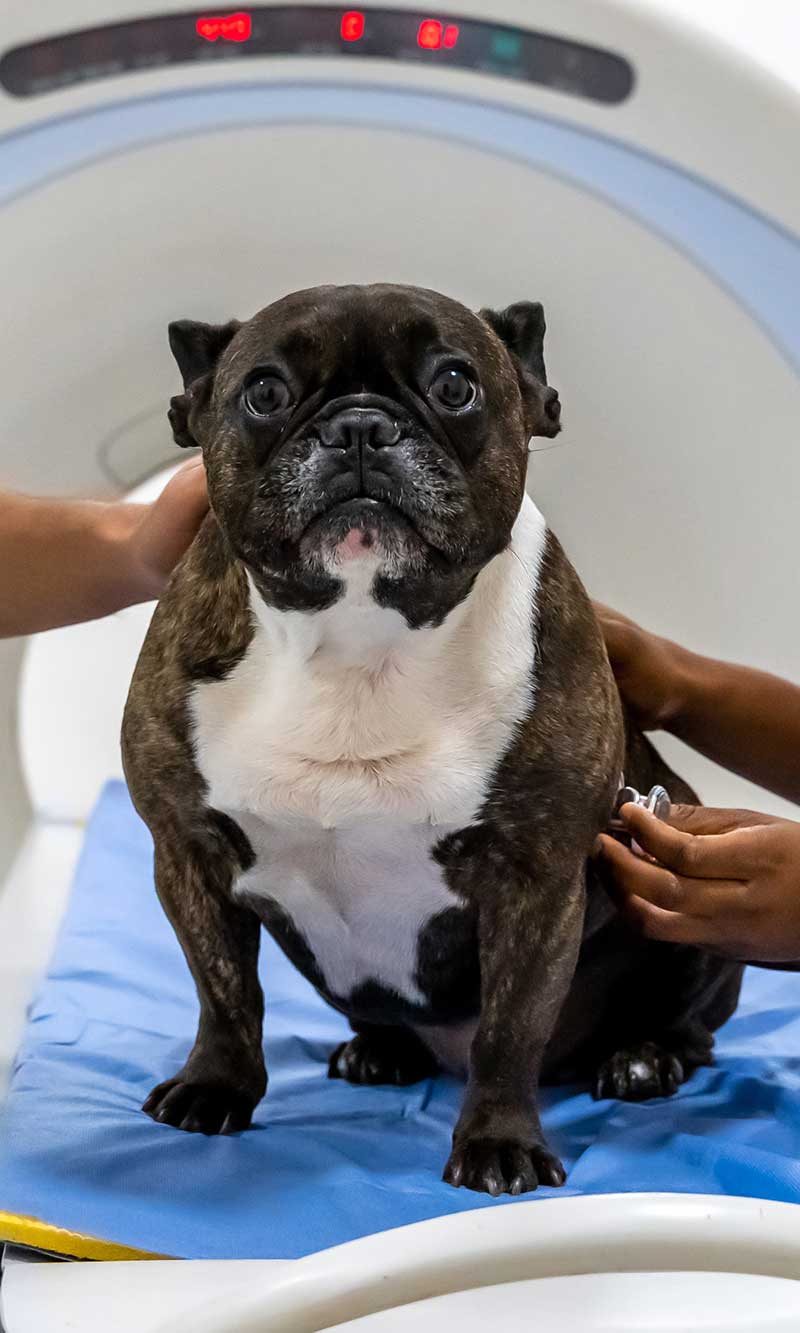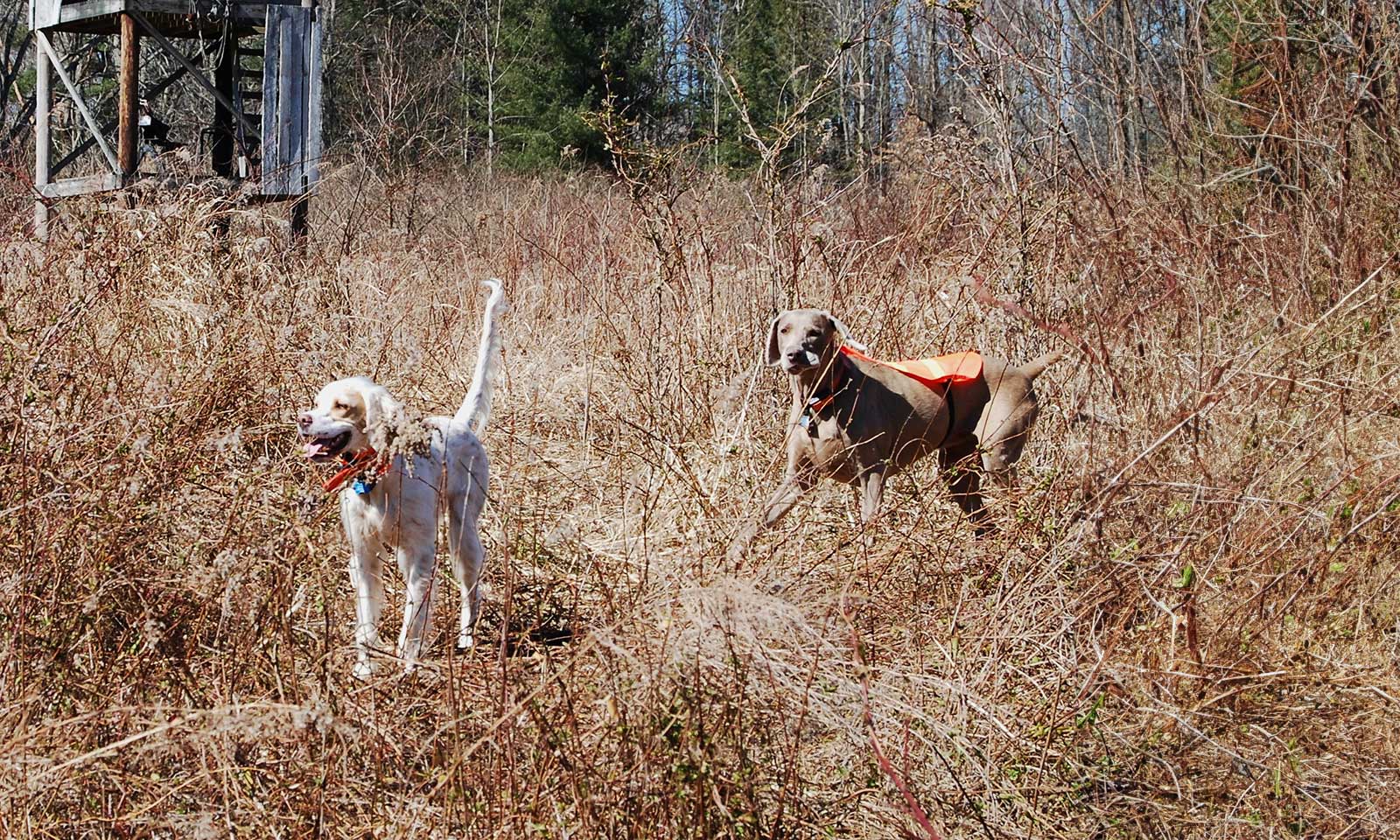Advanced Diagnostics for Veterinary Neurology Patients in Minnesota
We offer advanced diagnostic services for our neurologic pet patients in Minnesota. Our leading-edge medical equipment gives us a clear picture into your pet’s neurologic health.
Diagnostic Services We Offer
Here’s a breakdown of the diagnostic services you’ll find at Minnesota Veterinary Neurology:
In-House Bloodwork
Bloodwork is an important early step in diagnosing neurologic issues in pets. Our in-house lab can quickly provide results the same day and can give us valuable information about the health status of your pet.
Digital X-ray
Digital X-rays lets us get detailed images of your pet's spine, skull, and other structures. We can see issues such as tumors and fractures that might be affecting your pet's nervous system.
Unlike traditional X-rays, digital X-rays give us high-quality images with less radiation exposure. We can easily enhance, store, and share the images. Digital X-rays make the X-ray process a lot less stressful for your pet—and a lot quicker for our diagnostic process.

MRIs
Magnetic resonance imaging (MRI) is essential for diagnosing neurologic issues in pets. MRI gives us incredibly detailed images of the brain, spinal cord, and other soft tissues. This helps veterinarians spot conditions like disc diseases, tumors, and nerve damage.
Magnetic resonance imaging is a safe, non-invasive diagnostic tool, so there's no discomfort to the pet. Patients receive general anesthesia to make sure they're still and calm for the procedure. We monitor your pet every moment they're under anesthesia to ensure their safety.
Minnesota Veterinary Neurology is proud to utilize the MAGNETOM Avanto for MRIs at our facility. The Avanto's superior software includes the first TIM (Total Imaging Matrix) coil.
This feature improves image quality, and allows us to scan multiple sites at the same time. Because the machine can scan more than one region simultaneously, your pet will spend less time under anesthesia.

Spinal Tap
Also known as a cerebrospinal fluid (CSF) tap, a spinal tap is a vital diagnostic procedure here at our practice. Spinal taps help us diagnose pets with central nervous system (CNS) issues.
The spinal tap procedure involves collecting a small sample of cerebrospinal fluid (CSF) from your pet. CSF is the fluid surrounding your pet's brain and spinal cord. With the sample, we can check for abnormalities like inflammation, infection, and some cancers.
Most often, spinal taps are done immediately following the MRI. The MRI gives us the information to know if the spinal tap is safe to perform—and if it is necessary. Spinal taps can be uncomfortable, and that is why your pet will be under anesthesia during the procedure.
Whether done on its own or paired with advanced imaging, spinal taps give us crucial insights into conditions that affect the CNS.
Muscle and Nerve Biopsy
We use muscle and nerve biopsies when we suspect there's an issue at the microscopic level of a pet's muscles or nerves. The test involves a minor surgical procedure where we take a small sample of muscle or nerve tissue (or both, if needed) for examination.
Fortunately, the surgery is short, and we carefully monitor your pet the entire time. In most cases, pets can go back home the same day. Our team can then analyze the samples to gain valuable information about your pet's neuromuscular system.

Electrodiagnostics
We use electrodiagnostic tests to analyze the way your pet's nerves and muscles interact. One of our more common electrodiagnostic tests is the Brainstem Auditory Evoked Response (BAER). With BAER, we can evaluate your pet's hearing by measuring the brain's response to sound.
Electrodiagnostics give us a whole new level of information we can't get from imaging alone. We use it to help diagnose conditions like nerve damage, muscle disorders, and hearing loss.
Learn More About Our Advanced Diagnostics
If you’d like to learn more about our advanced diagnostics—or if you have any questions at all—please feel free to contact us for more information.


